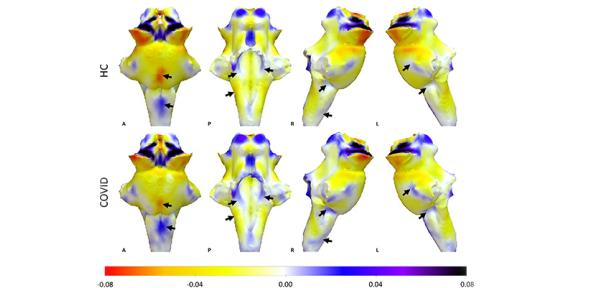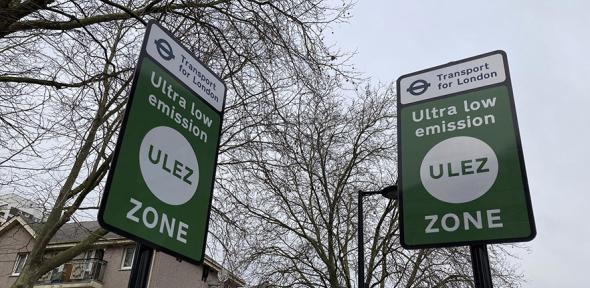Cambridge research: First global bond index to address fossil fuel expansion

This is a critical – and hugely challenging – moment for climate action. Legal and political pressures have paralysed asset managers and other financial service providers, leading to a recent wave of actors leaving investor climate coalitions. However, asset owners are increasingly seeing the need to take a leadership role in addressing climate change, which threatens the long-term future of their portfolios and the wider economy.
That’s why we are delighted to announce that Cambridge researchers based at the Department for Land Economy have selected index provider Bloomberg Index Services Limited to launch the first global corporate bond index to cover fossil fuel producers, utilities, insurance, and financing, with the aim of driving investment to reduce real-economy emissions.
You can read the University press release here.
“We are delighted that this project has reached such a key milestone," said Professor Martin Dixon, Head of the Department of Land Economy. "As a multidisciplinary department with a focus on outstanding academic publication and teaching, this project has the potential to serve as a ‘systems demonstrator’ for ongoing research in this important area.”
Why a bond index?
The launch of the bond index by an 816-year-old institution is an unusual process and a tale worth telling. It began with a peer-reviewed paper by Dr Ellen Quigley, Principal Research Associate at Land Economy, exploring the case for evidence-based climate impact by institutional investors. This was followed by an internal feasibility study based at Jesus College, Cambridge (which continues to co-host the project), and supported by several other parts of the University.
With feasibility assessed, the team went out to global index providers to explore their interest. All of the leading players were interested in building this index, yet all grappled with a lack of access to data and the complexity of assessing companies based on their activities (e.g., whether they were building new fossil fuel infrastructure), not their business classification. An extensive Request for Proposals process resulted in naming Bloomberg Index Services Limited as our provider. The project aims to provide a genuine solution for asset owners looking to align their corporate debt instruments with their climate targets and to avoid both ineffective blanket interventions and greenwashing.
The central problem, on which the industry has faltered for decades, is how to manage the risk presented by a fossil fuel industry that continues to grow. Leading climate scenarios such as the International Energy Agency’s Net Zero by 2050 scenario are clear that fossil fuel expansion is inconsistent with the transition to a decarbonised economy. With approximately 90% of new financing for fossil fuel expansion coming from bonds and bank loans, debt markets must be the focus of investor efforts to transition away from fossil fuel expansionism. Bonds offer a larger pool of capital than equities, and a greater proportion are purchased in the primary market, where companies gain access to new capital.
The past decade has seen a significant rise in passive investment strategies and therefore an increase in financial flows into index funds, which have as a consequence become significant ‘auto-allocators’ of capital. This research project aims to study the extent to which the new bond index influences cost, volume, and access to capital among companies who are seeking to build new fossil fuel infrastructure and delaying the phase-down of their operations. Bond markets are not just a key part of investor action on climate change: they are the very coalface of fossil fuel expansion, i.e. new gas, oil, and coal extraction and infrastructure.
“This is an enormously impactful project which showcases the high-quality research undertaken at Cambridge," University of Cambridge Chief Financial Officer Anthony Odgers said. "The index is a game-changer for the growing number of asset owners who invest in corporate debt and understand its impact on fossil fuel expansion, particularly the construction of new fossil fuel infrastructure such as coal- and gas-fired power plants which risk locking in fossil fuel usage for decades."
“Once the index launches, Cambridge expects to invest some of its own money against financial products referencing it. This will enable us to align our fixed income holdings with our institution-wide objectives,” Odgers said.
There are currently no off-the-shelf products that allow for passive investments in global corporate bond markets without financing fossil fuel expansion, through fossil fuel production, utilities building new coal- and gas-fired power plants, and through the banks and insurers that continue to finance and underwrite these activities. By supporting the development of this ‘systems demonstrator’, we will be able to conduct essential research on the efficacy of such a lever.
“Instead of linear year-on-year reductions or blanket bans by business classification, the index methodology identifies companies that present the greatest systemic risks to investors, while ensuring that those companies that meet the criteria can rejoin the bond index,” said project leader Lily Tomson, a Senior Research Associate at Jesus College, Cambridge.
Several years of close collaboration with leading global asset owners such as California State Teachers Retirement System (CalSTRS), Universities Superannuation Scheme (USS), Swiss Federal Pension Fund PUBLICA and the United Nations Joint Staff Pension Fund (UNJSPF) provided input and technical market expertise that underpins the index. Alongside the University of Cambridge, the index will be used at launch by investments from the United Nations Joint Staff Pension Fund.
“Finally, large asset owners around the world have an index for this market that aims to discourage the expansion of fossil fuels,” said Pedro Guazo, Representative of the Secretary-General (RSG) for the investment of the UNJSPF assets.
Rules-based engagement: a lever for behaviour change
Debt benchmarks have a key role to play in any real efforts to tackle the expansion of fossil fuels. This project is innovative because it focuses on exclusions and weightings of companies based on their current corporate activity, instead of using an approach that relies on blanket exclusions by business classification (which does not generate incentives to change behaviour). For example, a company might be classed as a fossil fuel company, but if it stops expanding new fossil fuel operations and aligns to an appropriate phase-down pathway, the company has an opportunity to be included in the index and gain access to capital via funds which use the index, as a result.
Across the project, we are using data sources that have never previously been used to build an index – for example, the Global Coal Exit List (GCEL) and Global Oil and Gas Exit List (GOGEL) from Urgewald. We are taking a novel approach that focuses investor attention on those actors that our framework considers ‘edge cases’: companies close to reaching, or moving away from, alignment with the index. Companies have the option of being (re-)included in the index if they change their behaviour to align with the rules of the index. Academic literature suggests this is a lever for behaviour change in equities, but as an approach it is new to debt market indices. This is one of many key hypotheses that this project tests. We are convening a community of leading global academics who will support the creation of this new form of rules-based bondholder engagement.
This bond index project is one of a suite of actions rooted in academic research and collaboration that have been developed by the collegiate University. Alongside 74 other higher education institutions, Cambridge is delivering a parallel project focused on cash deposits and money market funds. We will continue to conduct research as the associated new products begin to operate through 2025.
At a time when climate damage is growing rapidly and is visible in news stories around the world, many actors across investment markets are looking for a clear path to take necessary action. As an academic institution and a long-term investor, the University of Cambridge is committed to supporting evidence-based research and action on climate change.
The bond index will be launched later this year. If you are interested in finding out more about the project or the team’s research, contact us here: bondindex@landecon.cam.ac.uk.
University of Cambridge researchers have selected index provider Bloomberg Index Services Limited to launch the first global corporate bond index to cover fossil fuel producers, utilities, insurance, and financing, with the aim of driving investment to reduce real-economy emissions.

The text in this work is licensed under a Creative Commons Attribution-NonCommercial-ShareAlike 4.0 International License. Images, including our videos, are Copyright ©University of Cambridge and licensors/contributors as identified. All rights reserved. We make our image and video content available in a number of ways – on our main website under its Terms and conditions, and on a range of channels including social media that permit your use and sharing of our content under their respective Terms.



















































































































































































































































































































































